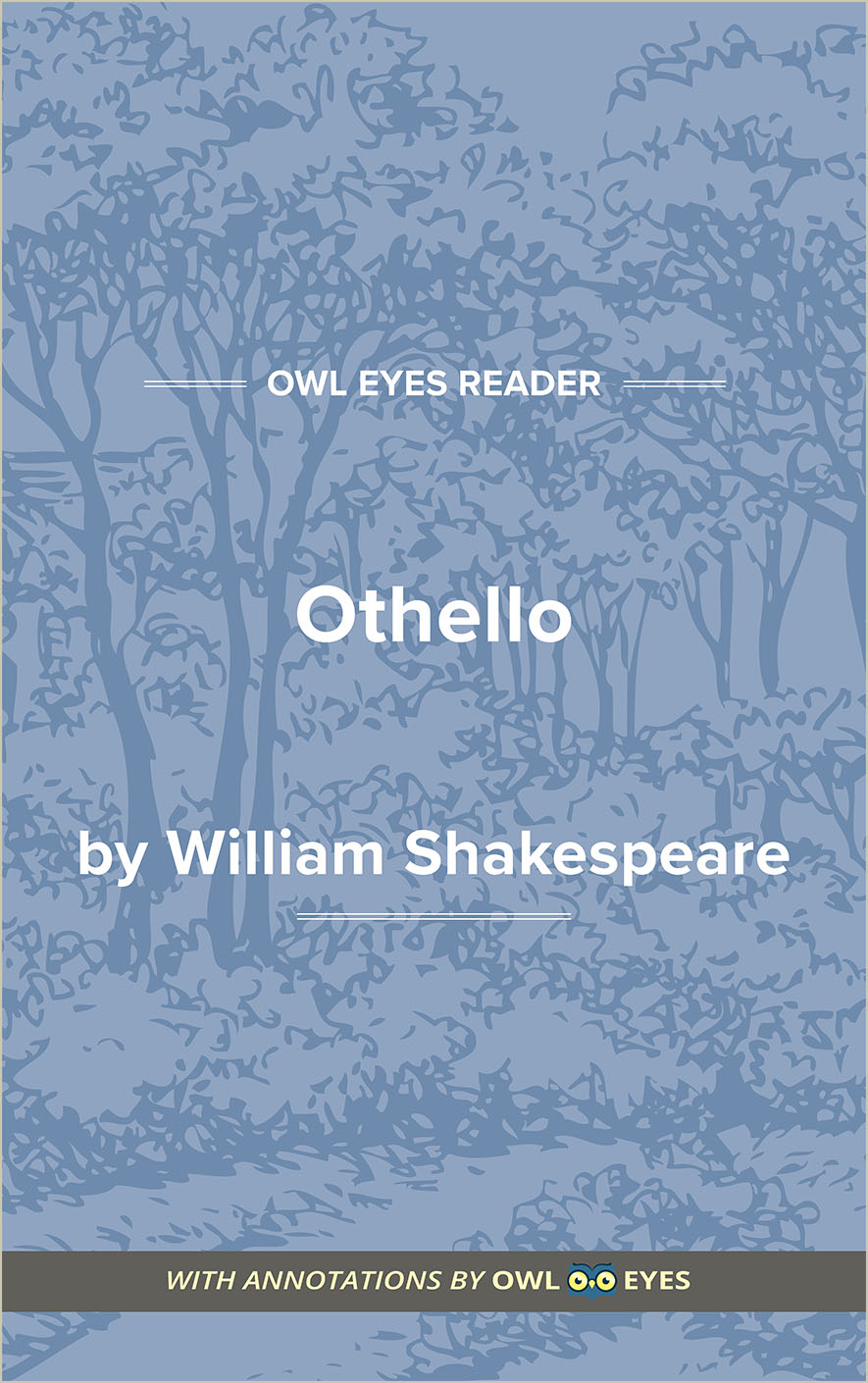Analysis Pages
Vocabulary in Othello
Vocabulary Examples in Othello:
Act I - Scene I
🔒"ancient..." See in text (Act I - Scene I)
"Nonsuits..." See in text (Act I - Scene I)
"Offcapp'd..." See in text (Act I - Scene I)
"Sblood..." See in text (Act I - Scene I)
Act I - Scene II
🔒"Abused her delicate youth with drugs or minerals That weaken motion:..." See in text (Act I - Scene II)
"O thou foul thief, where hast thou stow'd my daughter?..." See in text (Act I - Scene II)
"Good signior, you shall more command with years Than with your weapons...." See in text (Act I - Scene II)
"Faith, he tonight hath boarded a land carack; If it prove lawful prize, he's made forever...." See in text (Act I - Scene II)
"Ancient, what makes he here?..." See in text (Act I - Scene II)
Act I - Scene III
🔒"I will a round unvarnish'd tale deliver..." See in text (Act I - Scene III)
Act II - Scene III
🔒"'Zounds!..." See in text (Act II - Scene III)
Act III - Scene III
🔒"He shall in strangeness stand no farther off Than in a politic distance...." See in text (Act III - Scene III)
Act IV - Scene I
🔒"Ay, you did wish that I would make her turn: Sir, she can turn and turn, and yet go on, And turn again; and she can weep, sir, weep; And she's obedient, as you say, obedient, Very obedient. Proceed you in your tears.(275) Concerning this, sir—O well-painted passion!— I am commanded home...." See in text (Act IV - Scene I)
"and thither comes the bauble,..." See in text (Act IV - Scene I)
"Alas, poor caitiff!..." See in text (Act IV - Scene I)
"his unbookish jealousy..." See in text (Act IV - Scene I)
"Do but encave yourself, And mark the fleers, the gibes, and notable scorns, That dwell in every region of his face;..." See in text (Act IV - Scene I)
Act V - Scene I
🔒"’Tis he. O brave Iago, honest and just, That hast such noble sense of thy friend's wrong! Thou teachest me. Minion, your dear lies dead,(35) And your unblest fate hies...." See in text (Act V - Scene I)
"I have rubb'd this young quat almost to the sense, And he grows angry. Now, whether he kill Cassio, Or Cassio him, or each do kill the other, Every way makes my gain...." See in text (Act V - Scene I)
Act V - Scene II
🔒"O Spartan dog, More fell than anguish, hunger, or the sea! Look on the tragic loading of this bed; This is thy work...." See in text (Act V - Scene II)
"Here is my journey's end, here is my butt(310) And very seamark of my utmost sail...." See in text (Act V - Scene II)
"chaste stars..." See in text (Act V - Scene II)

